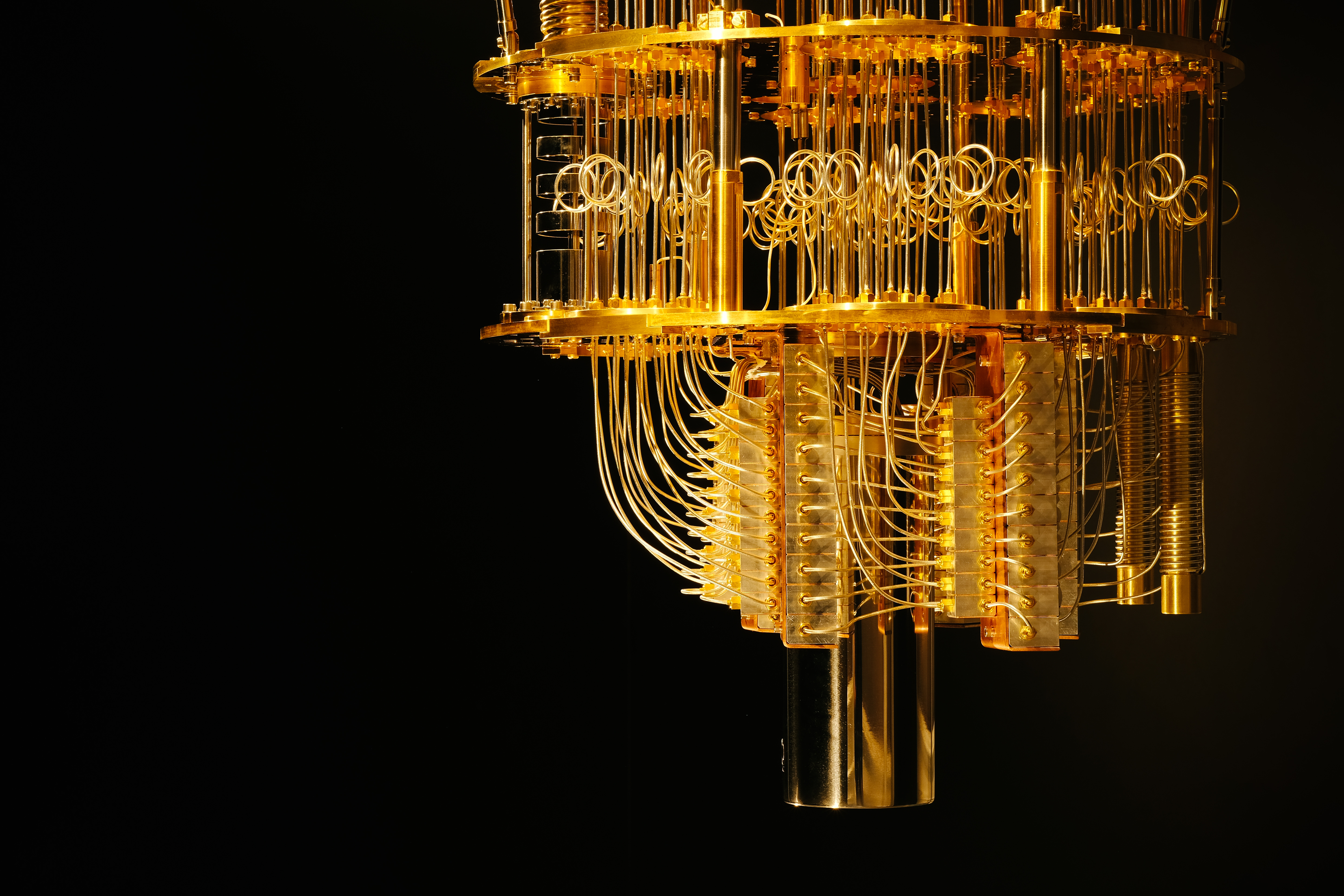
IBM has ambitions to take the lead in quantum computing, with a new governmental partnership inbound to make this a reality. Japanese news outlet Nikkei reports on a leaked joint effort by IBM and Japan's National Institute of Advanced Industrial Science and Technology (AIST) that seeks to produce a quantum computer containing 10,000 qubits by 2029, vastly outclassing today's class-leading 133-qubit machines.
Quantum computing has been a major focus of IBM for a few years now, and this newest step forward is a notable one. The 10,000 qubit machine explodes past IBM's current quantum roadmap, which doesn't even reach 2,000 qubits in commercial products until 2033 and beyond. (IBM had previously planned on a 2025 release of a 1,000 qubit computer, Condor, but the prototype has been shelved.) The goal of the 10,000-qubit machine is to run quantum calculations without a traditional supercomputer as backup, as modern 133-qubit machines often make enough mistakes to need support computers checking their work.
IBM and AIST are set to announce the deal with a signed memorandum "in the coming days", according to Nikkei's source. The partnership has some major goals already set forth. IBM and AIST will seek to develop semiconductors and circuits that function in near-absolute zero temperatures. Quantum computers work more efficiently and correctly the closer to zero Kelvin they get, and today's largest machines have to have their qubits and chips/circuits in separate rooms or chambers, so creating components that function at extreme temperatures is a necessary step for advancing quantum research.
AIST will leverage its patents, AI knowledge base, and connections to Japanese part-makers in the production of the forthcoming supercomputer. AIST will also help ensure future quantum supercomputers get into the hands of Japanese companies and industries, by providing training to companies and lobbying for the adoption of quantum by Japanese companies. This access to the lifeblood of Japanese industry is reportedly why IBM made the deal, the company's largest deal with a governmental industry in the quantum field.
It is important to note that much like every other part of computing, one massive number does not a great machine make. Qubit quality and efficiency increase quickly, which is why IBM has shelved recent attempts at 1,000-qubit computers in favor of their 133-qubit machines which beat 1,000-qubit prototypes in quality and efficiency. And just as traditional CPUs utilize hyper-threading and caching for better performance, quantum computing has other methods that increase its performance beyond simply boosting qubit numbers forever. After all, quantum computers become less stable at higher qubit counts, so the future of quantum will rely on smart engineering in keeping the 10,000-qubit and beyond computers of the future stable and inexpensive to run.
IBM and AIST's partnership may turn out to have a serious impact on quantum computing's growth and adoption. But today's quantum is still in its infancy, and has a long way to go before it becomes useful for consumers or professionals. IBM's 2021 quantum processor was recently out-classed by a team of researchers and a Commodore 64, proving IBM and the industry have a long road ahead of them to reach the point of true quantum utility.







